Returnal doesn't need a save system, it needs you to embrace mortality
This PS5 exclusive may draw from the legacy of roguelikes, but it needn't be beholden to the genre's idiosyncrasies
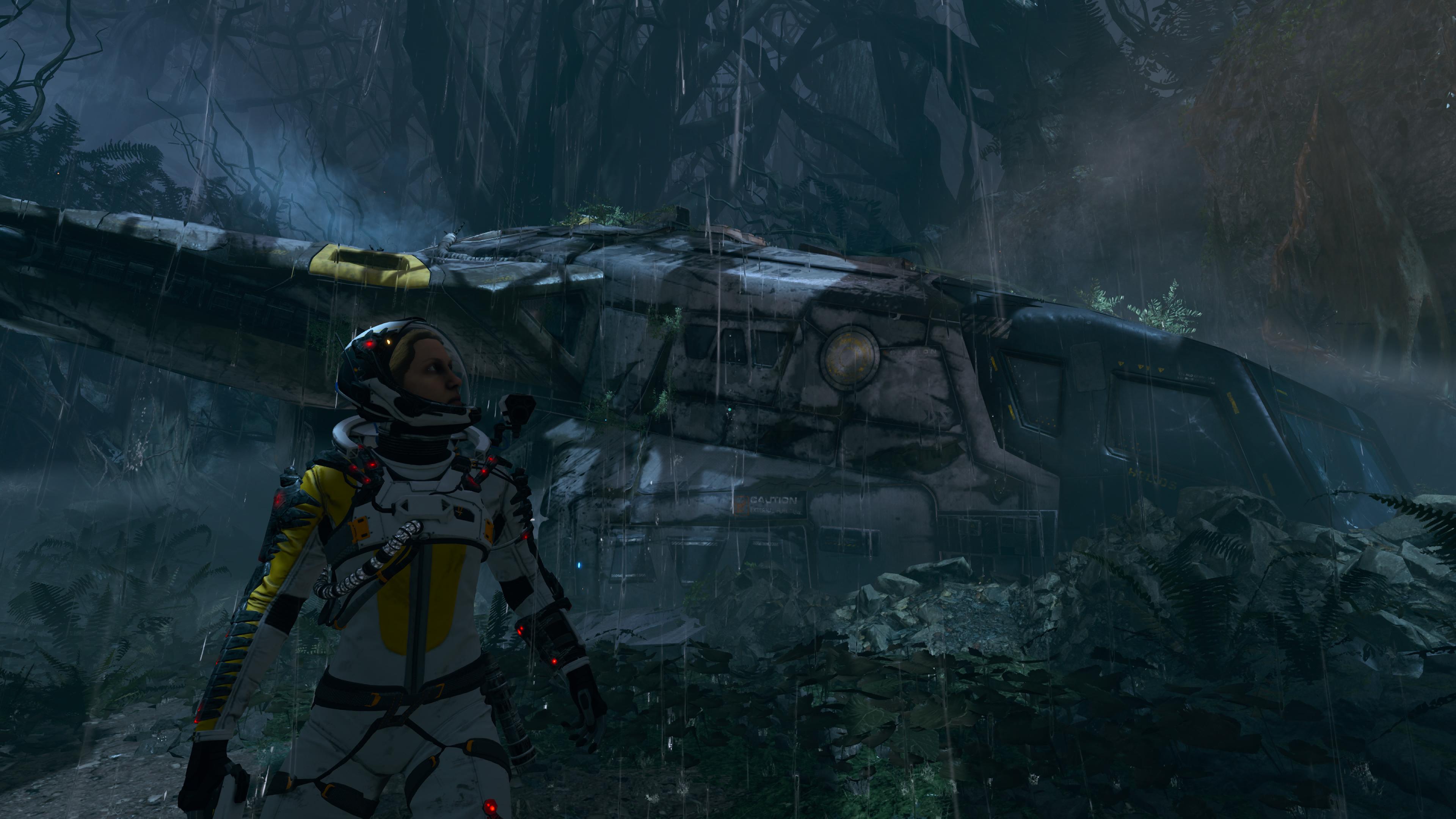
The more things stay the same, the more they change. I remember my early runs in the repeating loop of Returnal, just trying to survive, maybe long enough to complete the next objective. If I had to stop in the middle of a promising attempt, I'd put the PS5 in rest mode, returning later to rekindle that precious life, until the monsters of the planet Atropos overwhelmed me.
Now Atropos is like a second home. With the game's story finished, I rummage around each biome hunting for undiscovered pieces of lore, unlocking new items, artefacts and weapon traits as I go. I react to enemies instinctively – circling, shooting, charging, cleaving. I still get hurt, but almost always survive, replenish and go on, scoping two or three biomes in a single jaunt, until I tire. When reality calls me away now, I no longer want more life. I reset the cycle to start again later.
The way my experience evolved to this point feels exactly right. I know many players want Returnal to have some kind of mid-run save system, and some are already thinking about additional endgame content. In other words, they want Returnal to follow the lead of other modern Roguelike games, such as Hades. But let's not be hasty.
Embracing death
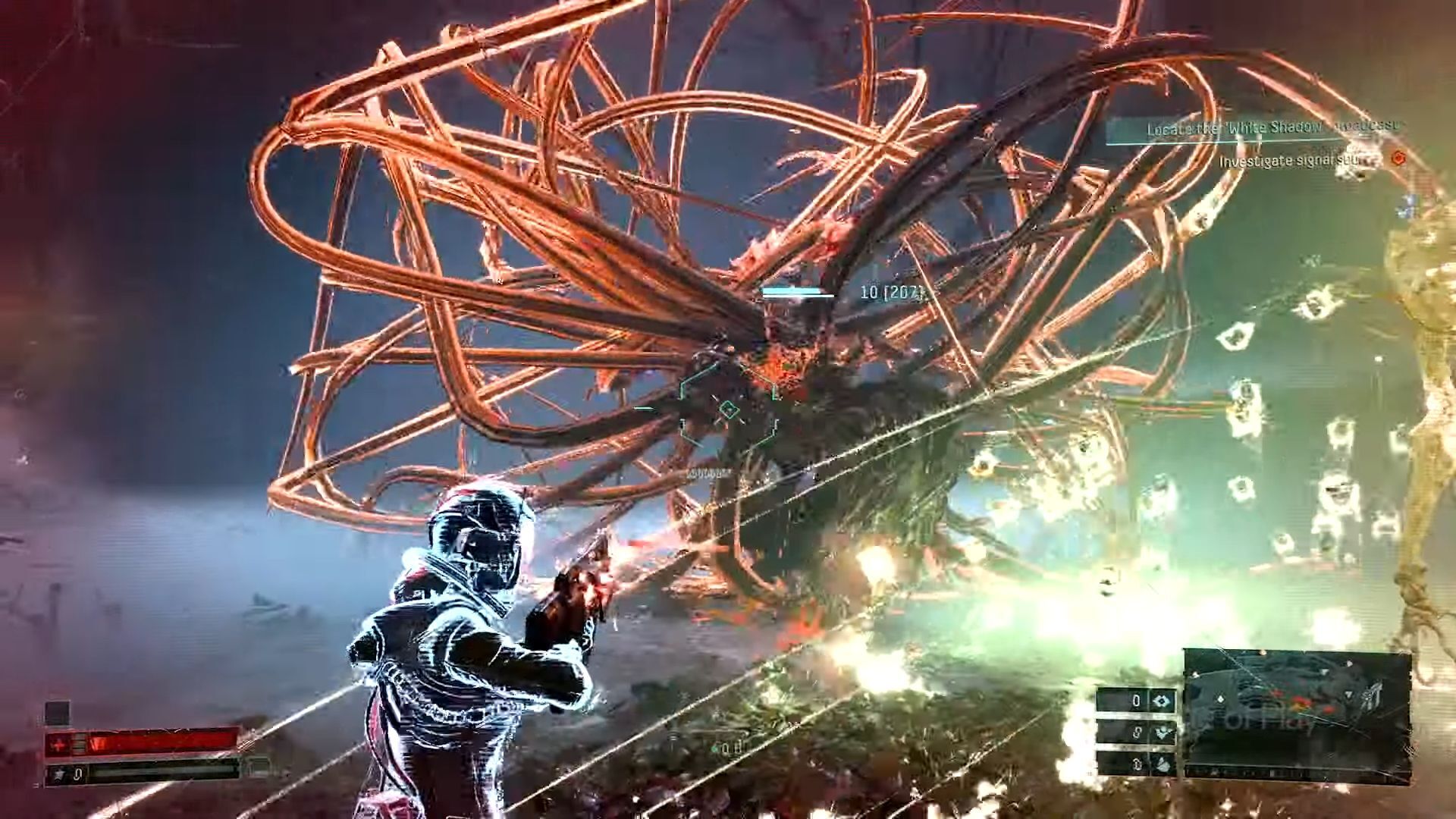
I understand the demand, especially the save feature. Its absence is a divisive move by developer Housemarque, restricting how people play the game. The PS5's rest mode is hardly an ideal way to maintain a run, especially in homes where multiple users share the console. And additional issues with glitches and crashes, some associated with rest mode itself, only sharpen the problem.
I would have used a save and suspend option myself, just as I would dive into more substantial post-credits content now. Yet at the same time, the game is special because it doesn't have those things. Returnal is one of a small number of titles that successfully matches its player journey with that of its protagonist. Selene's traumatic endeavours were in tune with my attempts to finish the game. The lack of a save feature and extra stuff to do added another dimension to the emotional experience.
When Selene first landed on Atropos, she sought answers and she had goals. Like me, she wanted to live longer. Her curiosity was mine, as we explored the opening areas. Each death was an ordeal – she reawakened gasping for breath, and I mourned the loss of weapons and ability boosts I'd picked up on the last expedition. But beating a boss brought us elation and a new sense of resolve. What had once felt impossible turned to the potential of reaching the end after all.
From there, we circled through desperation to hope and round again. Selene was determined. So was I. Sometimes a series of quick deaths to the whims of RNG made our goal feel more distant. But however many times we fell short or failed to turn up the answers we were looking for, there was always another route to try.
Sign up to the GamesRadar+ Newsletter
Weekly digests, tales from the communities you love, and more
Until there wasn't. By the final story ending, Selene understood what she'd known deep down all along. As her repressed memories resurfaced, she found acceptance – Atropos is home. It was the same for me. All that time I'd spent focusing on objectives and progress had repressed Returnal's Roguelike essence – a world of random combinations that never truly ends. Selene and I told ourselves that if only we had answers or achieved certain aims, we would somehow break the loop. But in retrospect the answer was always there – the loop is all there is.
There's something truly horrifying about this realisation, when it finally crystallises. It's the existential terror of an actual eternity, self-contained, where no matter what happens, how you die, you always revive next to your crashed ship again, in that hostile alien jungle.
Learning to let go
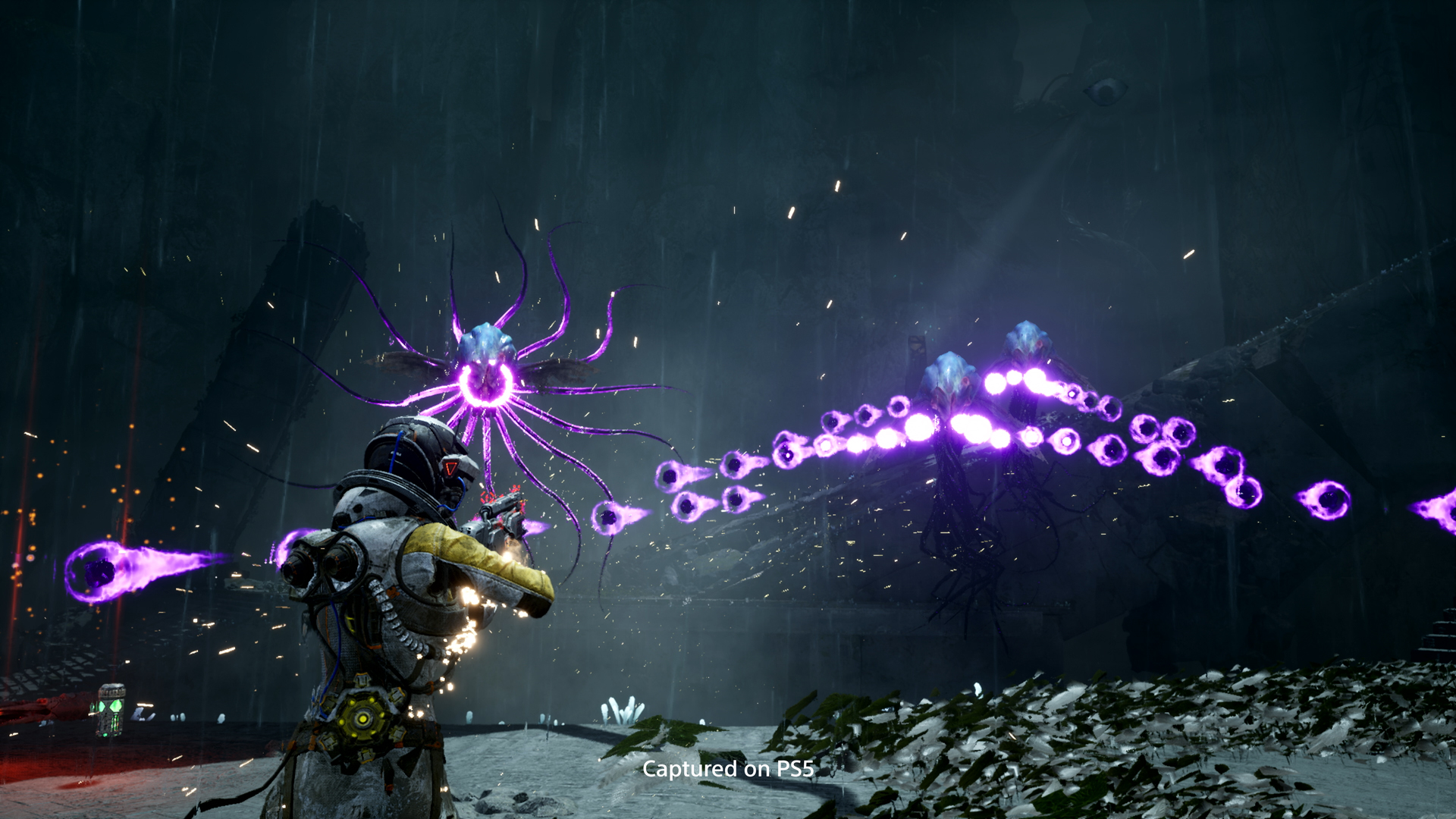
Imagine if Groundhog Day wasn't a two-hour film inevitably heading towards resolution, but literally endless, with no way out. Even Bill Murray would snap. That's what Returnal asks us to come to terms with. As much as we try to help Selene find a way out of her predicament, one day we'll run out of objectives and be left with that empty, stark truth.
All she can do is occupy herself in the trials of Atropos for as long as she can stand it, before giving in, dying, and resetting to do it all again. It makes sense then that there's no real progress left for us to accomplish, either, just minor distractions like daily challenges, or self-imposed tasks like unlocking all the items. Then what? It's our eternity. Invent something else.
In most games I would stop playing at this point, but the quality of Returnal means I've no intention of leaving Selene yet. Everything about the game – traversal, enemy design, weapons – is moreish. As I continue to unveil little tricks and hidden areas, Atropos does feel like home. Like Selene, I throw myself back in until the thrill starts to pale then submit to death. Until the next day, when I feel the draw to go again.
This impulse gels with another aspect of how the story ends – or at least my understanding of it. Selene doesn't merely accept her fate, she feels she deserves it. She finds a certain level of reconciliation with the place she's stuck in. As much as she may long for the release of a real death, some part of her wants to keep repeating.
The other implication here is that no single run in Returnal means anything. While that's true of most games – it's always possible to quit and start again – Returnal forces us to confront it. All that time spent fretting over a life, placing it in stasis with rest mode, is absurd in hindsight. What does one matter among infinity?
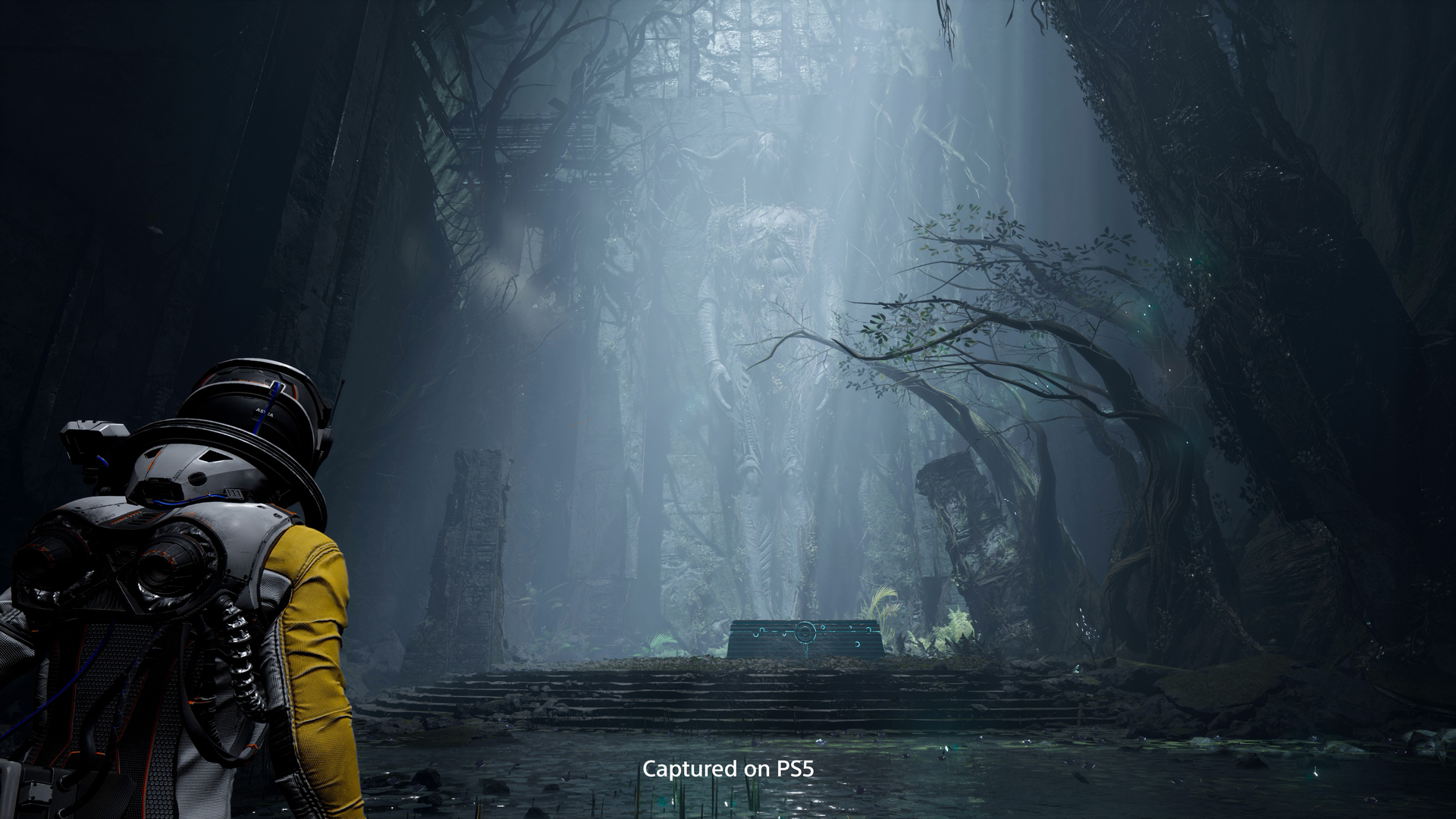
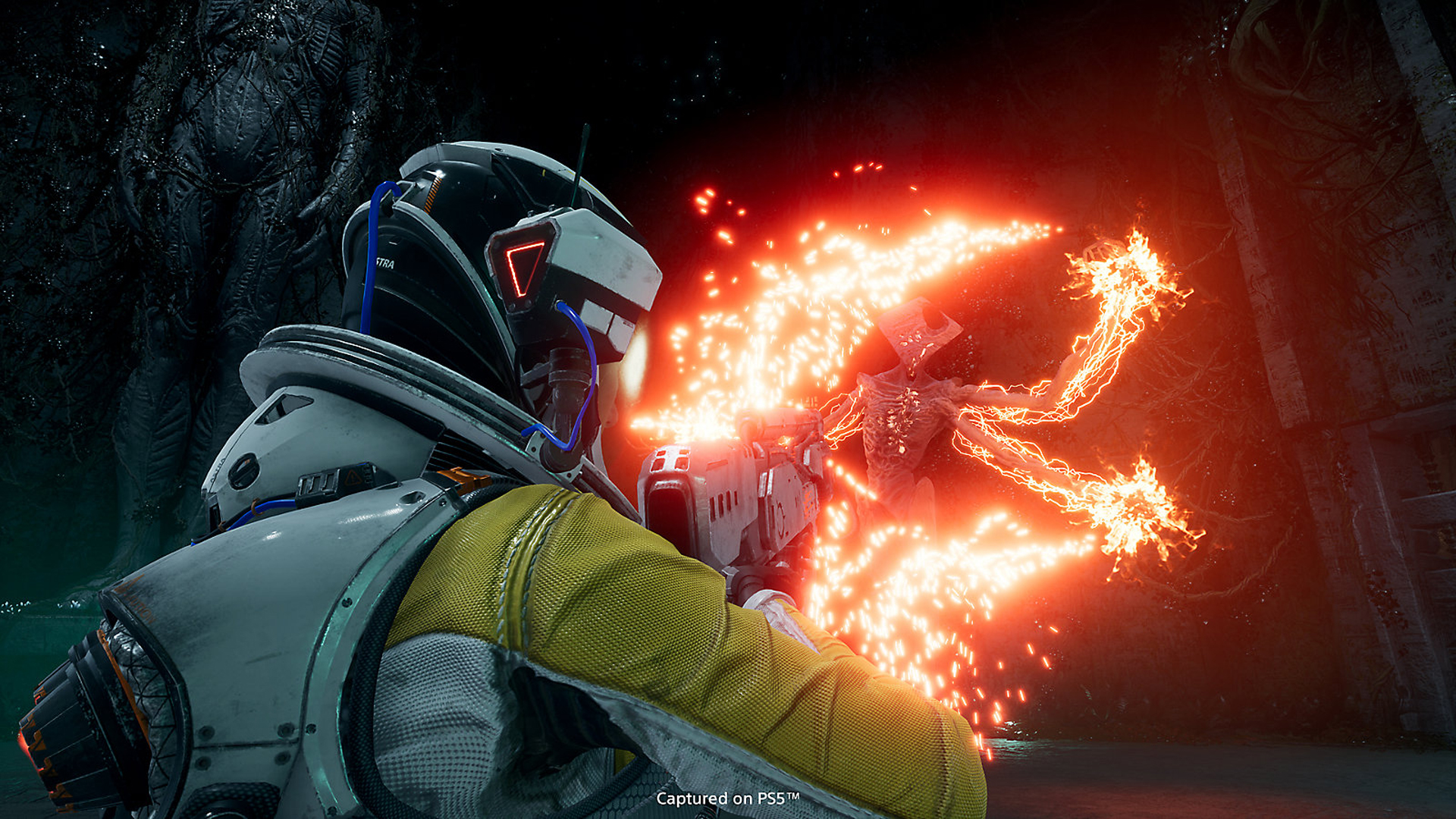
Returnal Ending Explained: How Housemarque's devastating story hides in plain sight
Naturally, whenever we have a good run with an effective synergy of artefacts, parasites, and items, we want to hold on to it. But in that respect Returnal is a little different from the Roguelike games we've grown used to in recent years. It's not really about creating a character 'build' with each run, it's making do with the luck of the draw. Some runs gather momentum, some don't. Another good one will be along shortly.
Also, for a Roguelike game, there's plenty of permanent progress in Returnal. Once you complete an objective or beat a boss, you open a shortcut. Completed areas can be missed out entirely, or partially explored until you find the gateway you need. So, each time you get somewhere in Returnal – which is never very far away from where you start – that life has done its job.
I still wouldn't argue against a save feature in Returnal, or additional content, but I feel that part of its power is wrapped in the decision not to include them (yet). Like some other great games, it creates an extra bit of succulence in the tensions between what we want and what we actually get. Maybe it's both worth changing and not. Like Returnal's story, there doesn't have to be a 'correct' resolution.
What we shouldn't do, however, is simply expect games to follow their genre conventions. Returnal is a Roguelike, but also its own thing, whose unorthodox approaches serve a more fascinating purpose. For me, the ebb, flow and horror of Returnal aren't tied to a finely tuned metagame so much as how it toys with my state of mind. Perhaps we don't need to order it back in line. Else the more things try to change, the more they'll stay the same.
Jon Bailes is a freelance games critic, author and social theorist. After completing a PhD in European Studies, he first wrote about games in his book Ideology and the Virtual City, and has since gone on to write features, reviews, and analysis for Edge, Washington Post, Wired, The Guardian, and many other publications. His gaming tastes were forged by old arcade games such as R-Type and classic JRPGs like Phantasy Star. These days he’s especially interested in games that tell stories in interesting ways, from Dark Souls to Celeste, or anything that offers something a little different.


